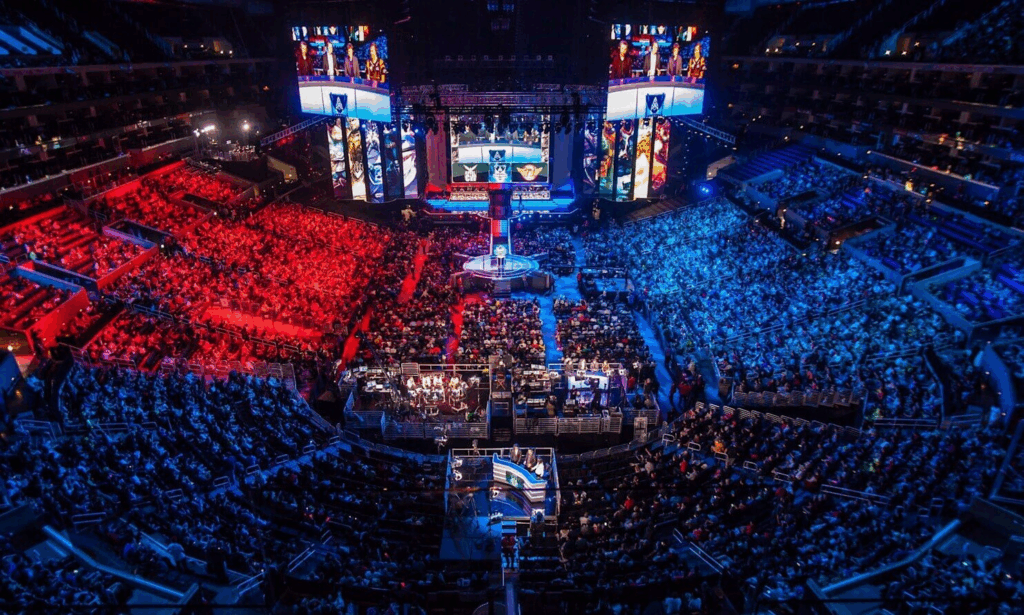Phil Sports Arena: A Hub for Esports and Betting?
By TexasSBA / March 30, 2025 / No Comments / Culture
The landscape of sports entertainment in the Philippines continues to evolve rapidly, with traditional venues finding new purpose in the digital age. Among these transforming spaces, the Phil Sports Arena has emerged as a potential centerpiece for the country’s growing esports scene. As competitive gaming captures the attention of Filipino audiences, questions arise about how this historic venue might reshape itself to become not just a place for traditional athletics, but a modern hub where esports and betting converge.
A Venue in Transition
Originally built to host conventional sporting events, the Phil Sports Arena has witnessed decades of basketball tournaments, volleyball matches, and various athletic competitions. However, as traditional sports viewership patterns shift and digital entertainment rises, the arena’s management has begun exploring new avenues to maintain relevance and attract younger audiences.
The sprawling complex, with its existing infrastructure of seating areas, concession spaces, and technical capabilities, presents a natural opportunity for conversion into an esports-friendly venue without requiring complete renovation. This adaptation reflects a growing trend across Southeast Asia, where traditional sports facilities are increasingly accommodating esports events alongside their conventional programming.
The Esports Explosion in the Philippines
The timing for such a transition couldn’t be better. The Philippines has emerged as one of Southeast Asia’s fastest-growing esports markets, with millions of active gamers and an increasingly organized competitive scene. Major tournaments for games like Mobile Legends, DOTA 2, and Valorant regularly draw massive online viewership and have begun to fill physical venues when hosted as live events.

This growth has created demand for dedicated esports venues that can accommodate both players and spectators while providing the technical infrastructure necessary for high-level competition. The Phil Sports Arena, with its central location and established reputation, stands poised to capitalize on this opportunity.
From Exhibition Matches to Regular Programming
Recent months have seen the Phil Sports Arena testing the waters with several exhibition esports events. These initial forays have included weekend tournaments, meet-and-greet sessions with popular Filipino gaming personalities, and demonstration matches featuring professional teams.
According to sources familiar with the arena’s planning, these test events have performed exceptionally well, drawing crowds that rival traditional sporting events while attracting a significantly younger demographic. This success has reportedly accelerated discussions about establishing permanent esports facilities within the arena complex, potentially including dedicated gaming spaces, broadcast studios, and team practice areas.
The Betting Connection
Perhaps the most intriguing aspect of this evolution is the potential connection to betting activities. Esports betting has grown exponentially worldwide, with the Philippines representing a significant market in the region. As esports becomes more established at venues like the Phil Sports Arena, the natural connection to betting activities becomes increasingly relevant.
While the regulatory environment for esports betting in the Philippines continues to evolve, industry observers note that established venues partnering with licensed betting operators could create a regulated framework that benefits all parties. For the arena, such partnerships could represent significant revenue opportunities beyond ticket sales and concessions.
What This Means for Filipino Gamers and Fans
For the average Filipino esports enthusiast, the emergence of the Phil Sports Arena as a dedicated venue represents a significant step toward mainstream recognition. Rather than being relegated to smaller, temporary spaces, major competitions could find a permanent home in one of the country’s most recognizable sporting facilities.
This institutionalization could also accelerate corporate sponsorship, media coverage, and professional development pathways for aspiring esports athletes. The connection to regulated betting activities, if implemented responsibly, might further enhance viewer engagement while providing additional economic opportunities within the ecosystem.

Looking Ahead: A Digital Arena for a Digital Age
As the Phil Sports Arena continues its transformation, questions remain about how deeply it will commit to becoming an esports destination. Will esports remain a supplemental offering alongside traditional sports, or could it eventually become the primary focus? How will betting integration evolve as regulations develop?
What seems clear is that the convergence of physical venues, digital competition, and interactive spectator experiences represents the future of sports entertainment in the Philippines. The Phil Sports Arena, with its storied history and adaptable spaces, appears well-positioned to remain relevant in this rapidly changing landscape by embracing rather than resisting these digital trends.
For Filipino gamers who have long awaited mainstream recognition of their passion, seeing a national sporting landmark transform into an esports hub would represent a powerful symbol of how far gaming culture has come – and where it might go next.